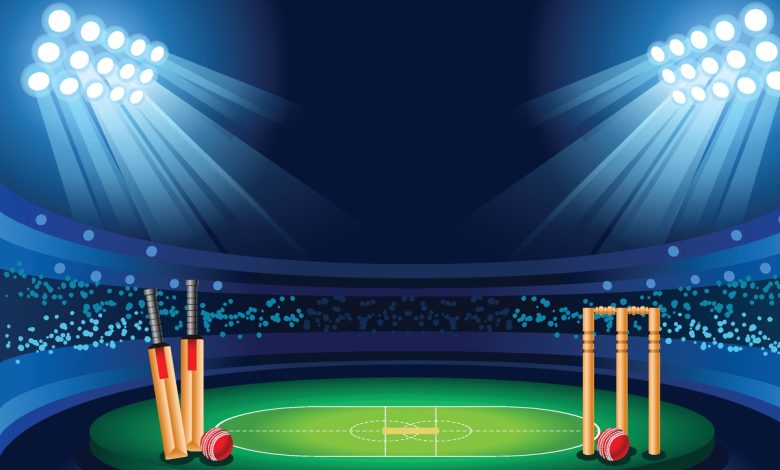
From the banning of PUBG Mobile to the introduction of VALORANT, Indian esports has experienced some significant changes in the last year. The expansion of betting and fantasy platforms in the region, on the other hand, has gone mostly unnoticed.
While the distinction between esports, esports betting, and fantasy sports can be hazy, companies like the Mobile Premier League (MPL), World777, Dream11, and WinZO have invested extensively in fantasy sports and real-money gaming. These platforms have even dabbled in what the industry refers to as “mainstream esports” in some situations.
MPL raised $90 million (£65 million) in its Series C round in 2020, while World777 raised $18 million (£13 million) in its Series B financing. Paytm First Games is also backed by Paytm, an Indian e-commerce payment network valued at around $10 billion (£7.3 billion). The majority of games available on these platforms are casual or hyper-casual.

GoodGamer Corp. was one of the companies that launched fantasy betting activities in September. GoodGamer runs the GoodGamer Fantasy Gaming App, which allows users to wager on games including Counter-Strike: Global Offensive, VALORANT, and Dota 2. The startup claimed to have over 250,000 members on its network when it concluded a $2.5 million (£1.8 million) seed investment round in October 2020.
GoodGamer’s goal: the emergence of fantasy sports
Through multiplayer games, the platform wants to encourage competitive gaming. Casual and hyper-casual titles are already available on sites like MPL in India. Both casual and core games will be integrated by GoodGamer. “We can measure real-time scores and other parameters in games like VALORANT and Free Fire,” Barbosa stated. GoodGamer’s offerings in 2021 are projected to include core esports titles and competitions.
In addition, the platform intends to work with sponsors and event organizers to put on competitive events. To reach local esports fans in India, it has teamed with Chennai-based tournament organizer Sky Sports.
The PUBG Mobile ban’s ramifications
The potential of government intervention is a valid concern for platforms that operate in the betting and real-money gaming market.
If you look at the stats, you’ll see that just over half of India’s population has access to mobile phones and the internet. We could see a lot greater demographic coming online in the coming years as technology becomes more affordable he said.
In a developing market like India, the term ‘esports’ has a wide range of meanings and is frequently used as a catch-all term. In an industry where real-money gaming is on the increase, gaming platforms with significant financial support are critical stakeholders. Many of them have large marketing budgets and have been chastised for adopting aggressive conversion strategies. Because they operate in a field that is extremely near to online gambling, regulation and policy changes are on the horizon due to the large number of users the platforms may handle.
World777 is a fantasy cricket betting site at its core, despite its fantasy sports and real-money gaming offerings.
As a result, they’ve begun to use the phrases gaming and gambling interchangeably, which is problematic!
Equipping skill-based real money gaming with gambling, in my opinion, is equivalent to comparing apples and oranges! It is illogical. But why am I saying this? The gaming industry thrives on a lot of enthusiasm, involvement, and energy.
In India, Fantasy Sports is revolutionizing the gambling industry
India’s gaming industry is about to undergo a transformation. The Indian gaming landscape has provided developers with a wealth of options to create games for Indian players. Sponsorships of the prominent cricket league, IPL, have changed over the years, from DLF, a real estate business in 2008 to Vivo, a mobile manufacturer from 2016 to 2019. The recent withdrawal of Vivo and the entry of Dream11, a fantasy sports platform, demonstrate the paradigm shift.
Market for fantasy sports –
The user base of the fantasy sports website has grown from 20 lakh in June 2016 to an incredible 90 million in December 2019. By the end of 2020, it is likely to surpass 100 million. Online fantasy sports providers’ gross income increased by Rs 1,480 crore. This is a staggering 161 percent increase in a single fiscal year. According to projections, the industry will set a benchmark of $3.7 billion by the end of 2024. This segment currently has a compound annual growth rate (CAGR) of 32 percent.
The Indian gaming industry —
India has 1/10th of the world’s gaming population and the world’s second-largest smartphone userbase! Consumer demand for mobile content soared after the cost of data dropped to a quarter of its previous level. By 2021, yearly revenue from mobile gaming is expected to exceed $1 billion, making India’s mobile game business the world’s fastest-growing in terms of revenue.
There are about 222 million gamers in India. They play mobile games for an average of 42 minutes per day! In India, the number of game production companies has exploded. They have increased by 11 times in the last decade, and are expected to reach 275 by 2020.
The widespread availability of the internet and the low cost of smartphones have resulted in widespread adoption and an ever-growing user base for online sports platforms. Following the traction, there is criticism. Also, while the IPL generates a significant portion of our revenue, we have other products, namely European cricket leagues, which we want to attract our users with for the time being.”
The IPL’s cancellation has once again demonstrated that, like its offline equivalent, the Indian fantasy gaming sector is a victim of cricket’s one-sport monopoly.
When asked about the league’s suspension and its impact, Harsh Jain, Chief Executive Officer and Co-Founder, Dream11 & Dream Sports, said, “The safety of the athletes is far more essential than any financial consequence.”
Read more about it in the news (internet advertising India, internet advertising, advertising India, digital advertising India, media advertising India)
It’s like having the best of both worlds
Winning in real life sports is frequently about leveraging your team’s strengths while minimizing your deficiencies. The great West Indian sides of the 1970s and 1980s didn’t have a superb spinner in their lineup. Manchester City, who have dominated English football for the past decade, are currently without a designated center-forward. When it comes to fantasy sports, though, there are no such constraints. You can pick the greatest possible possibilities and an XI with barely a weakness because you can choose players from both teams. If India were to play Australia on a seam-friendly pitch, Jasprit Bumrah, Pat Cummins, and Josh Hazlewood might all be in the same XI. R Ashwin and Ravindra Jadeja may be helped by Nathan Lyon if the pitch favored spinners. Fantasy sports players must select teams within budgetary limits, but you can generally eliminate flaws from your starting lineup.
Captaincy is solely based on appearance
In both cricket and football, the most experienced professional or the top performer is usually chosen as captain. They tend to stay in that position for a long time once they get it. Your captain and vice captain in fantasy sports change from game to game. Fantasy sports applications like Howzat give the captain’s (2x) and vice captain’s (1.5x) points more weight, which is a luxury that real-life sports teams don’t have. Even the most unskilled player can be made captain depending on the form guide. In the fantasy realm, the numerous variables that go into selecting an on-field captain do not apply.



